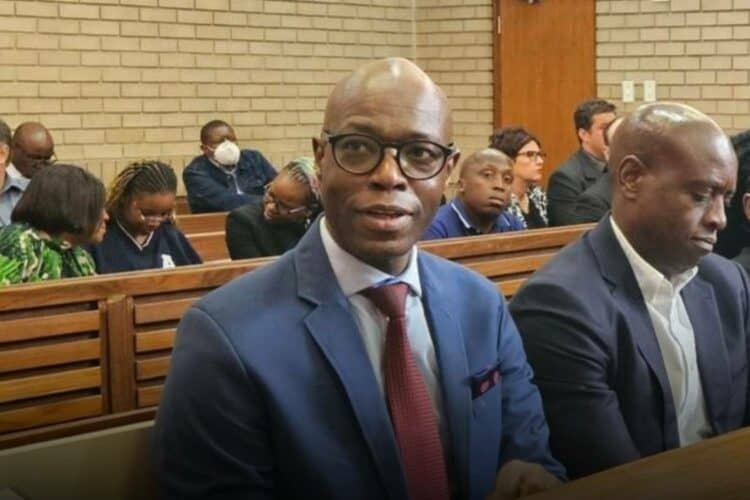The Middelburg Specialised Commercial Crimes Court dismissed the case against former Eskom boss Matshela Koko and 18 others due to unreasonable delays.
State fails to convince court it has a case on Matshela Koko
The court, led by Magistrate Stanley Jacobs, conducted an inquiry to determine the reasonableness of delays in the case involving allegations of corrupt contracts at Kusile Power Station, linked to Koko’s associates.
The inquiry was initiated after the state repeatedly requested postponements, hindering the case’s progression.
After acknowledging the complexity of the application, Magistrate Jacobs resumed proceedings — ironically — post a loadshedding-induced break to deliver his judgment.
The court concluded that the delays in the case were indeed unreasonable and denied the state’s request for further postponement.
Following the magistrate’s decision, the defence requested the case be struck from the roll, leading to its dismissal.
Following the court’s ruling, Koko released this statement on social media:
“We are living in crisis times as is well known. The past six years have been tragic. The prospect of a South Africa without the ANC in charge looms larger. We see the effects of this crisis on the economic, and political systems and the rule of law. The ANC has not put this crisis to waste. They have weaponised the National Prosecution Authority against its children,” he wrote.
Koko and his co-accused were initially apprehended in October 2022 during a pre-dawn raid.
The matter relates to an R2 billion deal Eskom entered into with Asea Brown Boveri (ABB), a Swiss engineering company that won a lucrative tender contract to provide work at Kusile Power Station in 2015.
At the time, Koko was a high-ranking executive at Megawatt Park, and coincidentally, financial records that form part of an ongoing criminal investigation show that the arrested family may have unduly benefitted from the Eskom-ABB deal.
According to investigations, soon after winning the Kusile contract, ABB allegedly passed down some of the work to a company registered as Impulse International, where Koko’s stepdaughter was listed as a shareholder.
It’s said that through a channel of kickbacks, Impulse allegedly received R30 million, from which several large sums of money were channelled to the matriarch, Mosima Koko.
The state’s inability to provide an indictment was a critical factor in the case’s dismissal.






